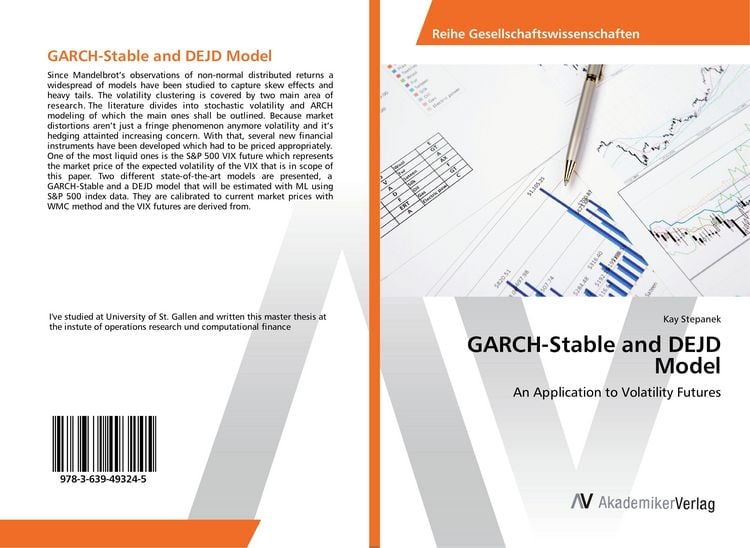
GARCH-Stable and DEJD Model An Application to Volatility Futures
-
- Englisch ausgewählt
28,99 €
inkl. MwSt,
Lieferung nach Hause
Beschreibung
Details
Einband
Taschenbuch
Erscheinungsdatum
19.12.2013
Verlag
AV AkademikerverlagSeitenzahl
76
Maße (L/B/H)
22/15/0,5 cm
Gewicht
131 g
Sprache
Englisch
ISBN
978-3-639-49324-5
Since Mandelbrot's observations of non-normal distributed returns a widespread of models have been studied to capture skew effects and heavy tails. The volatility clustering is covered by two main area of research. The literature divides into stochastic volatility and ARCH modeling of which the main ones shall be outlined. Because market distortions aren't just a fringe phenomenon anymore volatility and it's hedging attainted increasing concern. With that, several new financial instruments have been developed which had to be priced appropriately. One of the most liquid ones is the S&P 500 VIX future which represents the market price of the expected volatility of the VIX that is in scope of this paper. Two different state-of-the-art models are presented, a GARCH-Stable and a DEJD model that will be estimated with ML using S&P 500 index data. They are calibrated to current market prices with WMC method and the VIX futures are derived from.
Unsere Kundinnen und Kunden meinen
Verfassen Sie die erste Bewertung zu diesem Artikel
Helfen Sie anderen Kund*innen durch Ihre Meinung
Kurze Frage zu unserer Seite
Vielen Dank für dein Feedback
Wir nutzen dein Feedback, um unsere Produktseiten zu verbessern. Bitte habe Verständnis, dass wir dir keine Rückmeldung geben können. Falls du Kontakt mit uns aufnehmen möchtest, kannst du dich aber gerne an unseren Kund*innenservice wenden.
zum Kundenservice